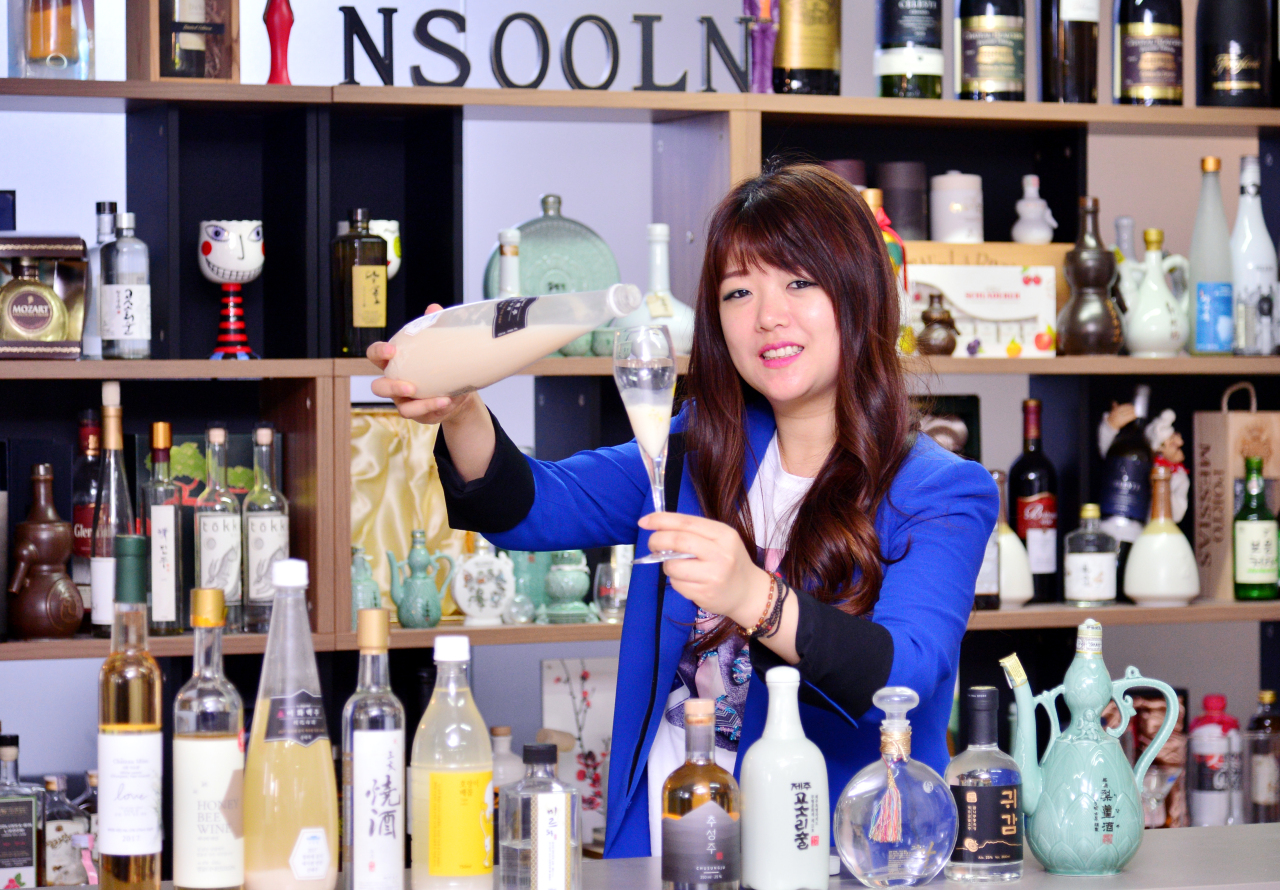What is South Korea’s representative booze? Most people would probably say soju.
But Lee Ji-min, a wine aficionado-turned-Korean liquor promoter, begs to differ. In her view, there are many local liquors more qualified for that title.
“This may sound radical, but I want to see those green soju bottles on grocery store shelves replaced by our finest traditional spirits one day. I want to contribute to making that happen,” she said.
 |
Lee Ji-min, a PR expert and promoter of Korean traditional liquor, poses during an interview in her office in Seoul. (Park Hyun-koo/The Korea Herald) |
Since switching over from imported wine in 2014, she has built a reputation as a passionate champion of Korean traditional brewers and is widely known as the one who hand-picked the drinks for President Moon Jae-in and US President Donald Trump’s state dinner in Seoul in 2017.
Traditional Korean drinks -- brewed with history, tradition and craftsmanship, using only local ingredients and no additives -- are abundant, she said, and just haven’t been discovered by a broader audience yet. That’s a job for which Lee, a longtime PR and marketing expert, seems perfectly cut out.
She laments the loss of what she called a long, proud liquor tradition during Korea’s industrialization in the ‘60s and ‘70s.
That’s when factory-produced soju -- typically made by adding water and artificial sweetener to alcohol made from imported starches -- replaced traditional distilled soju. Makgeolli producers ditched locally grown rice for cheap overseas imports and introduced shorter fermentation times and pasteurization to extend shelf life and gain mass-market access.
Though these drinks are inexpensive -- a bottle of soju retails at slightly over $1 -- the trend in Korea is now moving toward quality over quantity, making room in the market for higher-end traditional drinks, Lee said.
Providing booze information through social media channels Daedongyeojudo and NSOOLN, her goal is to guide more drinkers to the world of traditional spirits.
“Thankfully, compared with 2014 when I first started, the industry looks a lot better now. More restaurants and bars are offering traditional liquors and online sales, which have been allowed since 2017, are increasing,” she said.
When asked for recommendations, she mentioned supermarket makgeolli brands Jipyeong and Neulin Maeul, also known as Slow City.
“Both are from respected breweries that boast a long history. They use only local ingredients,” she said.
Among the more premium product lines, her list includes Ehwa Baekju, a Champagne-like makgeolli available at some E-mart stores and online. She also spoke highly of distilled spirits Hwayo, Moonbaeju and Yigangju.
“There are many other great drinks, but I made those choices mainly considering their availability for newcomers to this genre,” she said.
When asked how best to enjoy the drinks, Lee advised consumers to be creative.
“Try pairing makgeolli with pizza or Yigangju with fried chicken,” she said. “They are surprisingly fabulous matchups.” Also, Hwayo works well as a base for cocktails: For a start, try Hwayo and tonic instead of gin and tonic, she said.
By Lee Sun-young
(
milaya@heraldcorp.com)








![[Today’s K-pop] Blackpink’s Jennie, Lisa invited to Coachella as solo acts](http://res.heraldm.com/phpwas/restmb_idxmake.php?idx=644&simg=/content/image/2024/11/21/20241121050099_0.jpg)